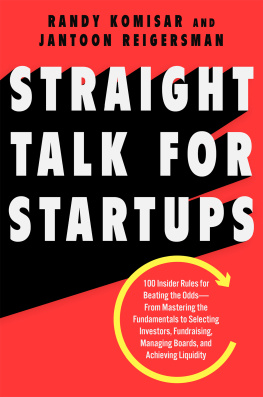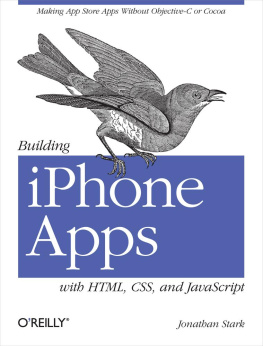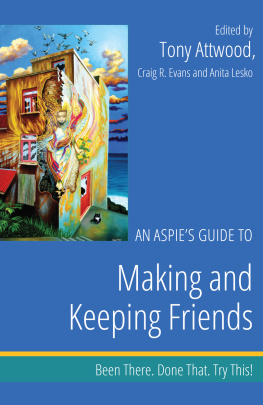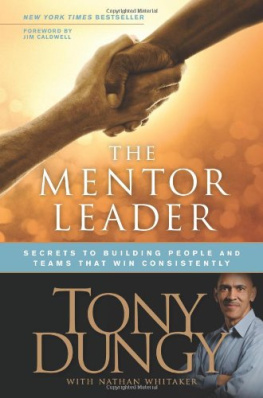Many of my experienced, trusted mentors have died.
I looked around a few years ago and the wise, (mostly) patient souls who I had peppered with a million questions, who dealt with my late-night phone calls, who helped me start companies and build products and run board meetings or just be a better personthey were gone. Some much too early.
Now I was the one getting peppered with questions. The same questions I had asked, over and over. Questions about startups, sure, but also more basic stuff: whether to quit a job or not, what career move should I make, how to know if my ideas are any good, how to think about design, how to deal with failure, when and how to start a business.
And weirdly, I had answers. I had advice. I learned it from amazing mentors and the incredible teams Ive worked with over thirty years. I learned it at many tiny startups and giant companies, building products that hundreds of millions of people use every day.
So now, if you call me at midnight, panicked, asking how to keep a companys culture intact while its growing or how not to screw up marketing, I can give you some insights, some tricks and tips, even some rules.
But I wont. Please dont call me at midnight. Ive learned the value of a good nights sleep.
Just read this book.
It contains much of the advice I give out daily to new grads and CEOs, to execs and interns, to everyone trying to claw their way through the business world and build their career.
This advice is unorthodox because its old-school. The religion of Silicon Valley is reinvention, disruptionblowing up old ways of thinking and proposing new ones. But certain things you cant blow up. Human nature doesnt change, regardless of what youre building, where you live, how old you are, how wealthy or not. And over the last thirty-plus years Ive seen what humans need to reach their potential, to disrupt what needs disrupting, to forge their own unorthodox path.
So Im here to write about a leadership style that Ive seen win, time and time again. About how my mentors and Steve Jobs did it. About how I do it. About being a troublemaker, a shit-stirrer.
This isnt the only way to make something worth making, but its my way. And its not for everyone. Im not going to be preaching progressive, modern organizational theory. Im not going to tell you to work two days a week and retire early.
The world is full of mediocre, middle-of-the-road companies creating mediocre, middle-of-the-road crap, but Ive spent my entire life chasing after the products and people that strive for excellence. Ive been incredibly lucky to learn from the bestfrom bold, passionate people who made a dent in the world.
I believe everyone should have that chance.
Thats why I wrote this book. Everybody trying to do something meaningful needs and deserves to have a mentor and coachsomeone whos seen it and done it and can hopefully help you through the toughest moments in your career. A good mentor wont hand you the answers, but they will try to help you see your problem from a new perspective. Theyll loan you some of their hard-fought advice so you can discover your own solution.
And its not just tech entrepreneurs in Silicon Valley who deserve some help. This book is for anyone who wants to create something new, who is chasing excellence, who doesnt want to waste their precious time on this precious planet.
Im going to talk a lot about building a great product, but a product doesnt have to be a piece of technology. It can be anything you makea service. A store. It could be a new kind of recycling plant. And even if youre not ready to make anything yet, this advice is still meant for you. Sometimes the first step is just figuring out what you want to do. Getting a job youre excited about. Building the person you want to become or building a team that you can build anything with.
This book isnt trying to be a biographyIm not dead yet. Its a mentor in a box. Its an advice encyclopedia.
If youre old enough to remember a time before Wikipedia, you might recall the joy of the literal wall of encyclopedias on your bookshelf or your grandparents study or deep inside the bowels of the library. Youd go to it if you had a specific question, but once in a while youd also just open it up and start reading. A for Aardvark. Youd follow along and see where you ended up, reading straight through or hopping around, discovering little snapshots of the world.
Thats how you should think of this book.
- You can read it straight through from beginning to end.
- You can poke around to find the advice and stories that are most interesting or useful in your current career crisis. Because theres always a crisiseither personally, organizationally, or competitively.
- You can follow the See also links sprinkled throughout the book just like youd click through on Wikipedia. Dig deeper into any topic and see where it takes you.
Most business books have one basic thesis that they spend three hundred pages expanding on. If youre looking for a range of good advice on various topics, you might need to read forty books, skimming endlessly to find the occasional nugget of useful information. So for this book I just collected the nuggets. Each chapter has advice and stories informed by the jobs, mentors, coaches, managers, and peers Ive had and the countless mistakes Ive made.
Since this is my advice based on my experience, this book roughly follows my career. We go from my first job out of college and end up where I am now. Every step, every failure, taught me something. Life didnt begin with the iPod.
But this book isnt about me. Because I didnt make anything. I was just one of the people on the teams that made the iPod, iPhone, the Nest Learning Thermostat, and Nest Protect. I was there, but I was never there alone. This book is about what Ive learnedtypically the hard way.
And to understand the things Ive learned, you should probably know a bit about me. So here goes:
1969
The usual start: I was born. And by preschool, we started moving. My dad was a salesman for Levis and we were always on the road, seeking the next denim gold mine. I went to twelve schools in fifteen years.
19781979
Startup #1: Eggs. I sold them door-to-door in third grade. I stand by that companyit was a solid business. I bought eggs cheap from a farmer, then my little brother and I piled them in our blue wagon and pulled it down the neighborhood streets each morning. It gave me pocket money that my parents couldnt tell me how to spendmy first taste of true freedom.
Had I stuck with it, who knows what heights I could have attained.
1980
Found my lifes work. It was the summer of fifth grade. A good time to discover your calling. I took a programming class when programming meant filling in bubbles with a number 2 pencil on little cards and getting results on a paper printout. There wasnt even a monitor.
It was the most magical thing I had ever seen.
1981
1st love. An Apple ][+. Eight bits, a real, gorgeous twelve-inch glowing green monitor, a beautiful brown keyboard.
I had to have that incredible, incredibly expensive machine. My grandfather made me a deal that hed match whatever money I earned working as a golf caddy, so I worked my ass off until I could afford it.
I cherished that computer. It was my all-abiding passion and my lifeline. By twelve, Id given up trying to maintain traditional friendships. I knew Id just move again the next year, so the only way to hold on to friends was through my Apple. There was no internet, no email, but there were 300-baud modems and digital bulletin boardsBBSes in the parlance of the time. Id find my fellow geeks in whatever school I was in, then wed keep in touch through our Apples. We taught ourselves to program and hacked the phone companies to get free long-distance calls and bypass the $1$2/minute fees.

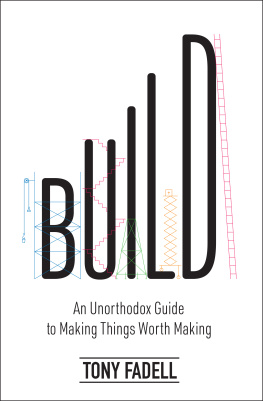
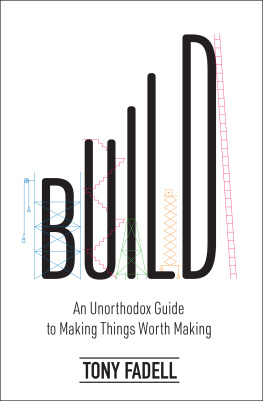

![Whitaker Nathan - The mentor leader: [secrets to building people and teams that win consistently]](/uploads/posts/book/228009/thumbs/whitaker-nathan-the-mentor-leader-secrets-to.jpg)
